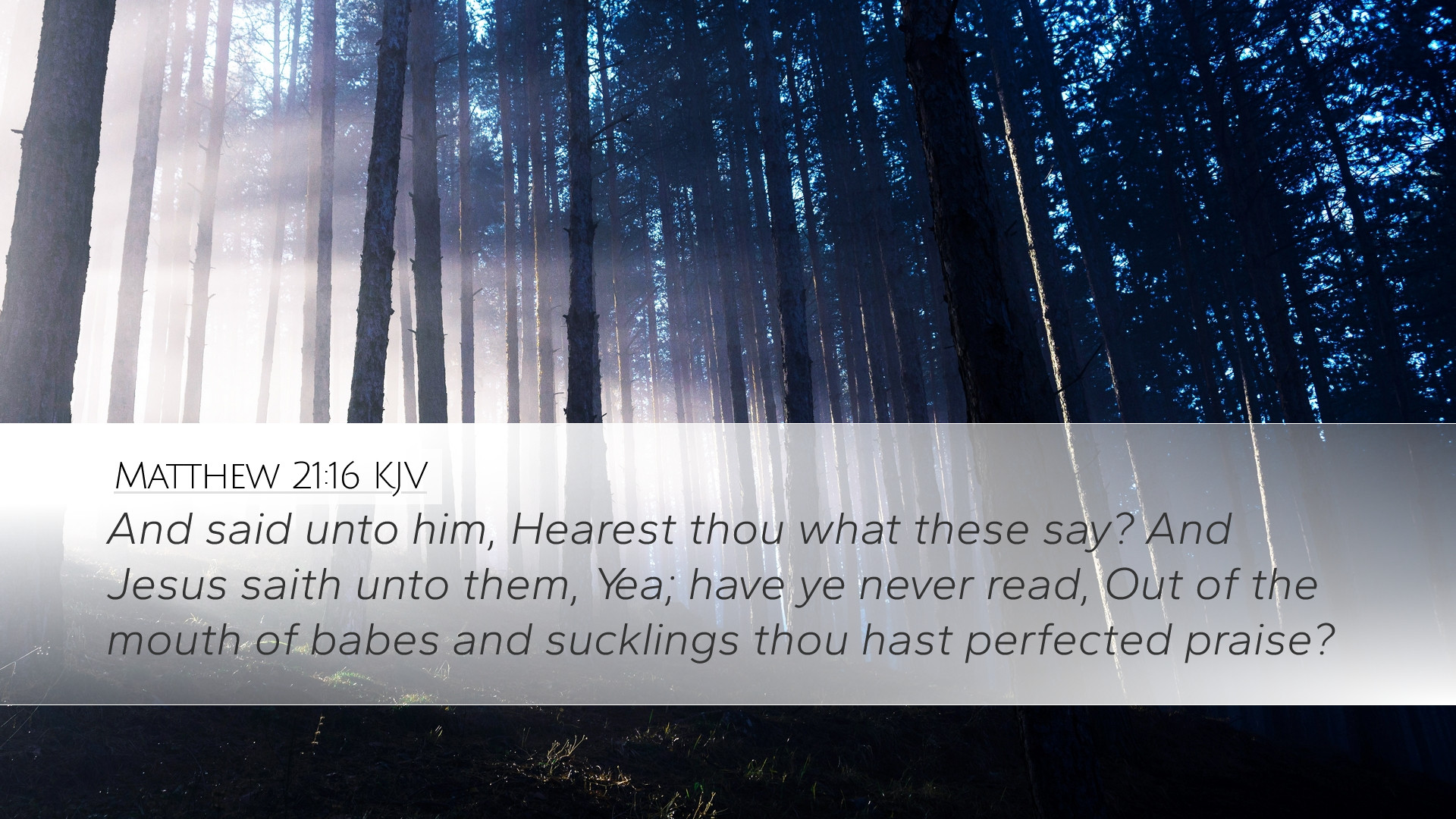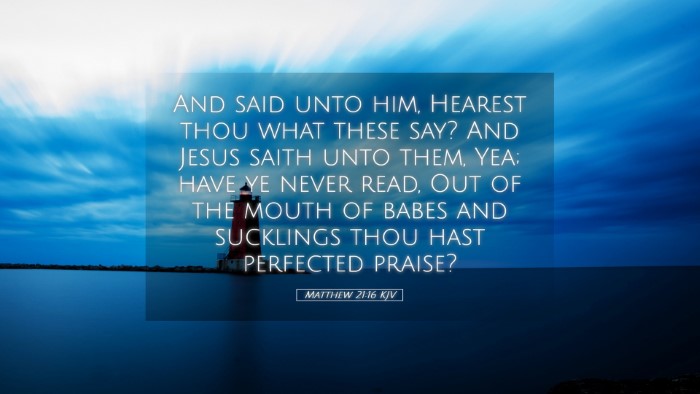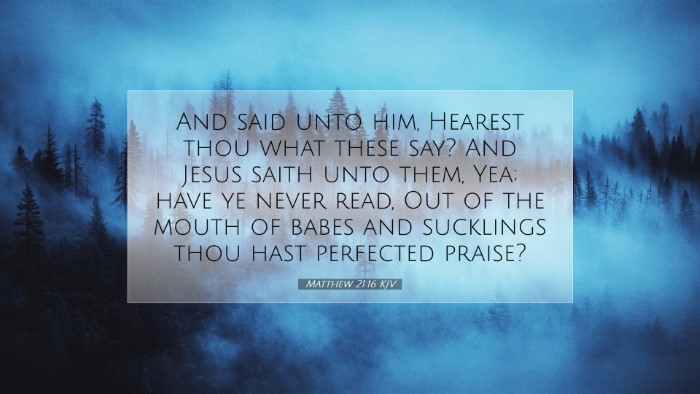Commentary on Matthew 21:16
Matthew 21:16 reads: "And said unto him, Hearest thou what these say? And Jesus saith unto them, Yea; have ye never read, Out of the mouth of babes and sucklings thou hast perfected praise?" This verse falls within the context of Jesus' triumphant entry into Jerusalem, where His authority and divinity are proclaimed, and it highlights the contrasting responses of humanity to divine revelation.
Contextual Analysis
Prior to this verse, Jesus has entered Jerusalem, and the crowds are praising Him, recognizing Him as the prophet from Nazareth. This outburst of praise stirs criticism from the religious leaders, who question the propriety of such homage being given to Jesus. They challenge Him about the shouts of "Hosanna," considering them a disturbance and a false effort to elevate Him further than they believed appropriate.
Insights from Public Domain Commentaries
Matthew Henry's Commentary
Matthew Henry emphasizes the profoundness of Jesus' response. When questioned about the praises of the children, Jesus cites Psalm 8:2, highlighting that God can perfect praise through the simplest and most unassuming of His creations. Henry draws attention to the irony that the religious leaders, who considered themselves learned and authoritative, were being outmatched in understanding by children. He notes that this illustrates the wisdom and sovereignty of God in His choice of vessels for praise and the way He often chooses the weak and humble to confound the wise.
Albert Barnes' Notes on the Bible
Albert Barnes provides a detailed discussion on the significance of children proclaiming praise. He notes that their uninhibited joy and spontaneous acknowledgment of Jesus’ greatness highlight the nature of true faith. Barnes reflects on how Jesus routinely used children as examples of the kingdom of heaven, stressing their simplicity, faith, and sincerity. He further interprets this moment as a demonstration of God's revelation to the humble and the meek, contrasting the spiritual pride of the religious leaders with the natural reverence displayed by children.
Adam Clarke's Commentary
Adam Clarke elaborates on the phrase "out of the mouth of babes and sucklings." He asserts that such references emphasize God's capacity to bring forth truth and praise from the least likely sources. Clarke states that this fulfills the prophetic nature of the Psalms and that it reflects the heart of God – a desire for genuine praise that transcends the institutional formalities often found in religious practice. He also expresses that God’s desire is to receive worship from pure hearts, as demonstrated by the innocent praise of young children, suggesting that such praise is genuine and aligned with the truth of who God is.
Theological Implications
This passage invites profound theological reflection regarding the nature of praise and the kingdom of God. It indicates several key themes:
- The Nature of True Worship: The innocent praise of children serves as a critical reminder that true worship arises not from human wisdom or strength but from a heart that recognizes God’s glory.
- God’s Sovereignty: God’s ability to use the humble and unlearned to confound those who believe themselves wise reflects His sovereignty and the inversion of earthly expectations.
- Humility in Faith: The text strongly asserts that openness, humility, and simplicity in faith are required to truly behold the kingdom of God.
Application for Pastors, Students, and Scholars
The richness of this passage extends beyond its immediate context into multiple realms of application:
- Teaching and Leadership: In seeking to lead congregations, church leaders can reflect on how they cultivate an environment where genuine praise is encouraged, particularly among those who may be marginalized or underestimated.
- Spiritual Formation: Students of the Bible are reminded to approach Scripture with childlike faith, ready to receive insights without the interference of preconceived notions.
- Worship Practice: Worship leaders can draw principles from this passage to ensure that worship is accessible and engaging to all ages, emphasizing that the poorest expression of praise holds profound value in God's economy.
Conclusion
In Matthew 21:16, the exchange between Jesus and the religious leaders invites believers to reflect deeply on where true praise originates. Jesus, by quoting scripture, affirms that God, in His wisdom, receives praise from the most humble of sources. This interaction not only encapsulates the message of divine revelation and the acknowledgment of Jesus' identity but also serves to challenge and provoke thought among believers regarding their own understanding of praise, authority, and humility in faith.


